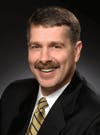(The American Bar Association OSHA Midwinter Meetings are closely watched because the administration uses these meetings to educate and explain its process and programs. Howard Mavity of Fisher & Phillips has written several blog posts about these meetings and provides us with some insider information.)
I prefer meeting with business leaders and safety professionals more than spending time with fellow attorneys. I enjoy my profession, but 35 years ago my dad challenged me to “be a business person who is also a lawyer,” so I spend my time with my clients. The American Bar Association (ABA) OSHA Committee is a marked exception to that predilection.
Every year, union and management attorneys, OSHA and MSHA officials, solicitors and state OSHA plan lawyers, in-house counsel and political appointees meet on neutral ground. What’s amazing is that professionals with very different worldviews get along well and develop and share information that ultimately benefits employees and employers.
We have the same core commitment to keep workers safe and as a result, attendees always leave this conference with new ideas, a better understanding of how the fed and state OSHA programs work and personal relationships which allow us to cut through posturing and nonsense when we deal professionally with one another.
Professionalism
When I first joined the section many years ago, “competitors” Dennis Morikawa, Pete Wade and Eric Hobbs heartily welcomed me and became friends. We’ve competed against one another for cases and shared clients, and if I’m conflicted out, these are the type of top-notch attorneys I wouldn’t hesitate to recommend … and then extort a beer from them for saying nice things. We share knowledge and experts and even bounce ideas off one another … and these are just three examples.
Matters get hot between management and unions, and yet, before the sessions began, I talked at length with Steve Yokich, who represents the UAW, about his clients’ concerns about workplace violence and how they’d like to see employers respond. Good guy.
Likewise, even if they fully support the administration’s goals and tone, the solicitors and OSHA attendees talk freely over coffee about how to best work with the government.
These career folks care about safety, whether they are Dems or Republicans. And it’s always worthwhile to listen to what matters to the ALJs and commission members. You must not personalize disputes.
This leads to a core value of F & P’s case handling approach…
Fight hard, but even as you legally challenge a legal position, always put safety first. In other words, fix the problems and make the client near perfect, and then the dispute is a legal matter. The government must know that the employer has addressed safety concerns and its goal is not to circumvent OSHA and MSHA’s requirements.
Effect of this Professionalism on Case Handling
A second core value is that the management attorney’s role is to get the best outcome. This seems self-evident, but it is too easy to get caught up in the need to win. If you’ve built a relationship and trust with the government and can obtain a better resolution through negotiations, why would you not do so?
This leads to an admonition to clients: Don’t push frivolous challenges, but if you have a reasonable position, stick to your guns. We can’t effectively negotiate a settlement if the client is willing to go to the mat.
Similarly, do not contest an OSHA or MSHA citation solely because you think that simply contesting a case will cause the government to roll over. It doesn’t work that way.
Government attorneys try cases for a living. While they want to be good stewards of their government resources, they aren’t afraid to try a case. On the other hand, OSHA and their legal representatives quite rightly focus on safety and may not evaluate whether the complainant can carry their burden to prove the elements of a violations. The government attorneys do evaluate whether they can prove their case, which is why one often obtains a better resolution after contest.
Enough musings. Things I’ll cover in upcoming blogs:
- U.S. DOL Solicitor of Labor M. Patricia Smith’s frank comments;
- The DOL’s thoughts on the “Fissured Workplace:” Temps, contractors and non-routine workers;
- Constant emphasis on whistleblower claims;
- Fred Walter’s panel on Cal-OSHA developments,
- And more.
(Reprinted with permission from the Workplace Safety and Health Blog of Fisher & Phillips LLP.)

